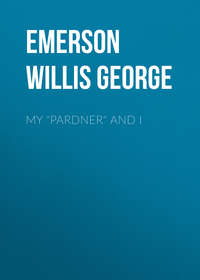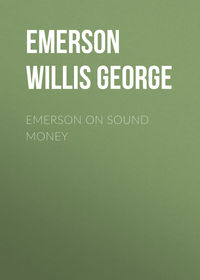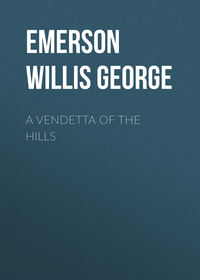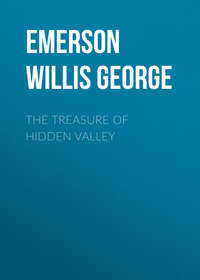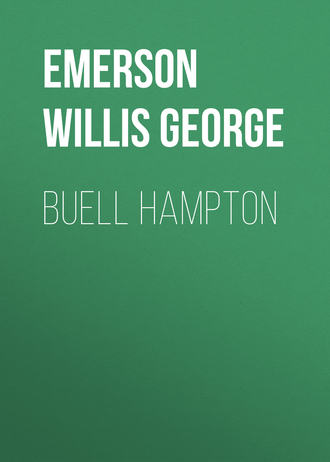 полная версия
полная версияBuell Hampton
Lady Avondale explained about the sickness of Lord Avondale, her eldest son, and that she was daily expecting to hear of his death, at which time her dear son, Lenox, would succeed to his brother’s titles and estates. To all appearances she was very frank and confiding with Mrs. J. Bruce-Horton; but she failed to say anything about the multitude of debts.
Mrs. Lyman Osborn seemed particularly to fancy Dr. Lenox Avondale, and he paid much attention to her. She assured her bosom friend, Mrs. Horton, that she was very proud of his attentions – not for herself, but because of the opportunity it gave to pave the way for “a most desirable match for dear Ethel.”
“You are a sweet, good creature; you are indeed,” said Mrs. J. Bruce-Horton, when in the privacy of their room. “I could not manage. it, I certainly could not, without your assistance.”
“I don’t believe we had better be in too great a hurry about starting home,” concluded Mrs. Osborn.
“Yes, I understand,” agreed Mrs. Horton, nodding significantly, “I think that my health will not permit me to start for a couple of weeks. But, really, have n’t you noticed, Lucy, what a deliciously wholesome foreign air there is about this place? With Lady Avondale and the charming countess here I could almost fancy that we were again in dear old England.”
“On, it is perfectly lovely,” rejoined Mrs. Osborn. “Dr. Lenox Avondale has invited me to go rowing this evening, and I certainly shall not miss the opportunity of pressing upon him the superiority of dear Ethel.”
“It is so good of you,” lisped Mrs. J. Bruce-Horton, “to take such a deep interest in the child. She is inclined to be rather wilful, and perhaps a little headstrong, but, by judicious management, I am sure that we can overcome her silly, girlish ideas.”
That afternoon Doctor Redfield called and found that Mrs. J. Bruce-Horton was very desirous that he should advise their remaining longer at the lake. He was not slow in making the suggestion. He wondered a little at the peculiar turn that affairs had taken, and the sudden attachment of his patient for Lake Geneva. However, he rightly attributed it to the presence of the English guests. When he left Ethel on the evening before, a strange feeling had come to him. He longed to see her, and he wondered if an hour of tender confidences would ever again be theirs. He remembered the pressure of the girl’s warm hand. It had thrilled him. Leaving the hotel in the afternoon, he hesitated a moment on the veranda in an uncertain frame of mind. Then he walked briskly down a path leading through a dense wood that shaded the shore of the lake. An hour afterward he returned to the hotel, he having seen nothing of Ethel. On taking his leave, he saw Dr. Lenox Avondale, accompanied by Mrs. Lyman Osborn and Ethel, going toward the boat-house. Ethel recognized him, and he fancied that there was a warmth in her smile as she bowed.
Thus matters went on, day after day, for several weeks, until Mrs. Horton was pronounced entirely recovered. “We shall be leaving in a day or two,” she observed to Doctor Redfield, “and, thanks to your skill, I am quite myself again.”
When Jack had gone, Mrs. Osborn looked knowingly at Mrs. Horton, and said, “I think it is just as well that Doctor Redfield is not coming any more. Ethel has spoken several times of him, and has really exhibited more interest in him than I like.”
“There is certainly no sentiment in Ethel,” replied Mrs. J. Bruce-Horton, “and I feel sure, from what I have said to her, that she is favorably impressed with Dr. Lenox Avondale – still, one cannot be too careful.”
While these two friends were thus plotting together, Dr. Jack Redfield was strolling along the beach with Ethel. His daily professional visits had been brightened with the anticipation of seeing her, and his heart had been gladdened by the belief that she, too, had looked forward, with more than passing interest, to his coming.
There are natures that blend and harmonize instantly. Friends are discovered – not manufactured or purchased, and congenial souls recognize one another by the restful influence that each imparts to the other. Ethel Horton and Dr. Jack Redfield each felt this kindred bond of sympathy and mutual discovery. When such souls meet, they defy all social customs.
“I don’t know,” Ethel was saying, naively, “why your visits give me so much pleasure. Am I too frank in saying this?”
“Oh, no,” answered Jack, “I presume it is because you are so deeply interested in your mother’s recovery, but I should like to believe that this is not the only reason. I should like to feel that you entertain an interest in me personally, although you must repent of it after we separate to-day, for doubtless I shall drift entirely out of your life. Perhaps that is your wish, and perhaps it is best that it be so.”
A blush came to Ethel’s face. She walked on silently at his side.
“Don’t talk like that,” she finally said, in girlish reprimand, “it makes me think that you are disagreeable. I shall always remember you.” She laughed a little as she said this, and looked archly up at Jack.
“Remember me!” said Jack, as he turned toward her under the shading branches of an elm that stood near the shore of the lake. “Yes, I should like to believe that you would remember me, but you cannot. Not only is your destiny marked out for you, but even your friends have been chosen for you, and I am not on the list. No difference what your personal wishes may be at this time, you will soon forget me.”
There was an earnestness approaching sternness in his voice.
“You are very cross to-day,” said Ethel, sadly, “very cross, indeed. I could not forget you, even if I were to try, and I do not think it kind of you to say so.”
“Are you quite sure?” inquired Jack, half rapturously.
She raised her eyes to his, and after a moment said, “I am sure. But what difference can it make to you? I shall never see you again.”
Jack could not reply at once. He turned partly away and looked out across the waters. As Ethel glanced at him she saw that his face was ashen. She feared that he was vexed and would again say something cross to her. She remembered the feeling that had come over her once before when she was with him. At the sight of his sad face her thoughts became those of pity; and she fell to wondering why friends have to part. She came close to his side, and, laying a hand on his arm, said, pleadingly, “You must not be angry with me to-day; indeed you must not. Why, your arm is shaking as if you were cold.”
“Yes,” replied Jack, in a low, trembling voice. “Oh, Ethel, Ethel, can you not see – can you not understand that I love you? My heart is beating for you with fierce hammer strokes through every fibre of my being. I have no words to express myself, but I know, yes, before God, I know that I love you better than my own life.”
Tears stood in Ethel’s eyes, and in their startled surprise Jack read that his impassioned declaration had been too sudden.
“Oh,” sobbed Ethel, as she bowed her head to hide her tears, “if daddy were only here.”
“Forgive me – forgive me for speaking, if I have offended you, but the thought of your going away from me, perhaps forever, quite unmanned me.” Lifting one of her trembling hands, he kissed it passionately. “Forget me, Ethel, forget me to-morrow, if you will, but only tell me before we part that I am forgiven.”
“No, no,” said Ethel, between her sobs, “I am sure there is nothing to forgive. Oh, I cannot understand this strange feeling that has taken possession of me. If daddy were only here so I could talk to him. I am afraid to speak to mamma.”
“Well, do not speak to her,” said Jack, soothingly, “but when you reach your home tell your father, if you will, and, if you can give me your love, write me and I will come to you at once.”
“It is good of you to say that,” said Ethel, still sobbing, “I really believe I love you now.”
Jack was about to throw to the winds all his good resolution of giving her time to decide, and he would have taken her in his arms then and there, and claimed her for his own forever, had not a colored boy from the hotel interrupted them.
“Beg your pardon, miss,” said he, “but Mrs. J. Bruce-Horton wished me to say would you please come to her.”
Jack dropped a piece of silver in the boy’s hand, and said, “Please say to Mrs. Horton that Miss Ethel will come very soon.”
They turned and walked slowly, side by side, along the path, in the now uncertain light, toward the hotel, enjoying love’s first awakening. Presently Jack spoke.
“You will not forget me, Ethel, but you will write for me to come, will you not?” The soft pressure of the girl’s small hand, which was resting contentedly in his, and her sweet, low words of assurance made Jack happy, and yet he was conscious of the sadness of parting. As they neared the hotel he lifted her hand to his lips again and murmured, “Good-bye, Ethel, God bless you.”
“Good-bye,” she whispered; and her eyes were brimming with tears. “I shall not forget my promise, and I am sure daddy will be on our side.”
Jack hurried down the walk, and Ethel stood on the veranda, looking after his retreating figure. A soft mist of awakened love overflowed her young heart and enveloped her.
She turned and went into the hotel – a woman; her girlhood had vanished with the awakening.
CHAPTER IV. – THE DEPARTURE
WHEN Mrs. Horton and Mrs. Osborn learned from the messenger boy that Ethel was with Doctor Redfield their agitation became apparent. They agreed that the best thing to be done was to hasten their departure from Lake Geneva. They wisely decided not to mention the affair to Ethel; but they determined to be more careful and observant of her in the future. Before retiring, they determined to start for the Southwest on the following day.
Lady Avondale was blandly polite, and she assured Mrs. Horton that already she had learned to love Ethel, the dear child, as if she were her own daughter. “Lenox,” she said, assuringly, “is taken with her, really he is quite attentive; have n’t you noticed it, Mrs. Osborn?”
“I must admit,” replied the intriguing Mrs. Osborn, “that he has expressed his admiration for her quite freely, while the dear boy’s eyes betray an eloquence of feeling that cannot be doubted.”
Had Mrs. Horton tried to give an explanation why she desired such an alliance, she would perhaps have floundered hopelessly in a sea of interrogation-points. Until she met Mrs. Osborn this Anglomania idea had never even been thought of by this otherwise sensible American mother. There are natures that influence us, unconsciously to ourselves, in strange and mysterious ways. We meet a person, and instinctively we are impressed with some peculiarity that he or she possesses. We hardly know just what it is, nor do we even stop to analyze our feelings. This one peculiarity might outweigh, in our minds, a hundred glaring defects – defects which in others would be not only quickly noticed by us, but severely condemned. Hence, in our newly formed fondness, friendship, or whatever it may be, we practically become blind to faults.
Mrs. Horton had formed a strong attachment for this very clever woman. This power was not an unconscious one to Lucy Osborn. She had quickly discovered it, and she meant to profit by it, – not in a mercenary way, no, she would have scorned even the thought of such a thing, but in a social way; through an alliance for Ethel she would in some way build an altar for herself.
She experienced little love or sentiment for either Mrs. Horton or her daughter, but she determined to use them as a means to an end. In most things Mrs. Osborn would have been considered an average woman – no better, no worse. Her desire, her ambition, her mania, however, to enter into English social circles was paramount to all other considerations. It was the gaunt tigress of her nature, famishing with desire, ready with hidden tooth and claw to pounce upon every opposition.
“I can assure you, Lady Avondale,” said Mrs. J. Bruce-Horton, and she flushed deeply as she spoke, “that a marriage between my daughter and your son, when he shall have succeeded to his family title, will be most agreeable to me.”
“So nice of you to say that, I am sure,” lisped her Ladyship, while in her heart she was saying, “Why, this silly American woman is extremely amusing.”
“I trust,” continued she aloud, “that your worthy husband will also approve of the contemplated alliance of our families.”
Mrs. J. Bruce-Horton shrugged her stately shoulders in an affected manner and looked bored. Mrs. Lyman Osborn came to her rescue.
“I promise you, Lady Avondale,” she observed, “that when Mrs. J. Bruce-Horton speaks, she does so for her entire family. Mr. John B. Horton is, perhaps – well, a little stupid, as American men of business so often are, you know. He is perfectly at home with his vast herds of cattle, mavericks, brands, and all that sort of thing, but when it comes to social questions, or to a family alliance like this, my dear friend, Mrs. J. Bruce-Horton, is in full authority.”
“Ah, just so,” replied Lady Avondale, as she adjusted her eye-glass and nodded her head wisely, “I understand.”
In the meantime Ethel had retired to her room; but not to sleep. She had a good cry all to herself, after which she bathed her flushed face and, after the manner of women, felt much relieved. She sat down and gave herself up to thoughtful reverie. She remained thus far into the night; but, finally, arousing herself, she said aloud, “Yes, he is a brain-worker, and oh! how I love brain-workers! Bah, I hate idlers!”
In the morning she awoke from the refreshing sleep of youth. She had scarcely finished her toilet when there came a knock at her door. It proved to be the colored bell-boy who had interrupted them on the evening before.
“Please, miss,” said he, with great obeisance, as she opened the door, “the gemman said I was to give you this letter in pusson.”
“Thank you,” said Ethel as she took the missive. Hastily tearing away the envelope she read:
“My darling Ethel: – It is now after midnight. I have walked along the path and stood under the old elm in the mad belief that I might see you again, although I must have known that it was impossible. I am sustained by the abiding hope of seeing you after you have spoken to your father. I trust it will not be long. I believe in you. The honesty of the soul that shines out through your eyes cannot be doubted. I am thrilled with deepest reverence, when I think of you, – a reverence such as one might feel when standing before a snow-white sacred shrine of peace, purity, and innocence. Know that my love is immortal – it cannot die.
“Affectionately,“Jack.”It was no shame to the noble heart of Ethel Horton that she kissed Jack’s hurriedly written note over and over, and bathed it with her tears. On the impulse of the moment she rang for pen and paper, and wrote:
“Dear Jack: – Your note has made me very happy. We leave to-day for the Southwest. I have thought it all over, and I know that I like you awfully well. I am conscious of a strange sensation that may be – well, I don’t know what it is. Do not give up hope, but share my faith in daddy. Yours,
“Ethel.”Before leaving Lake Geneva, it was understood between Mrs. Horton and Lady Avondale that her son was to visit them at their ranch in southwestern Kansas. He intended spending about two months, later in the fall, hunting in the mountains of Colorado. Dr. Lenox Avondale looked upon an alliance with the American heiress as necessary for the preservation of the estates in England, and he accepted his mother’s arrangements as a matter of course. The flirtation which he had secretly begun with Mrs. Osborn promised a recreation within itself when he should visit the Hortons.
As for Dr. Jack Redfield, he was impatient to see Ethel once more, and in the hope that she had not yet gone from Lake Geneva he boarded a train, and at noon was at the lake, only to find that the Hortons and Mrs. Osborn had taken their departure an hour before. He had not yet received Ethel’s letter. He returned to the city, determined to bury himself in the multiplicity of his professional duties and study until his summons should come from Ethel Horton.
That evening on returning to his apartments on Dearborn Avenue he found among his letters the note from Ethel. His other mail he left unopened, while he read and re-read this message of hope. It was so sacred to him – it meant so much. This great, strong fellow who, heretofore, had been proof against love’s tender passion, had awakened to find himself thoroughly ensnared in its silken meshes. No, he did not wish to be’ free. As he walked to and fro in his room, he idealized Ethel with an ardent chivalry that might have become a knight of old.
The door-bell rang and Hugh Stanton was announced.
“Admit him,” said Jack. “I wonder what he wants. No, I will not tell him of my happiness.”
A moment later Hugh Stanton was ushered into Jack Redfield’s presence. They greeted as the warmest of friends. Between these two it was always “Jack” on the one side and “Hugh” on the other. They had been classmates at Princeton. After graduation Hugh had turned his attention to commercial pursuits, and had gradually worked his way up to the cashiership of one of Chicago’s most conservative banking institutions.
Hugh Stanton presented a striking contrast to his friend, Doctor Redfield. He was slightly below medium height, and rather stout. He had a handsome, good-natured face, black eyes, fair skin, and a silky, dark mustache. His thick, dark hair was inclined to be wavy, while his rather small hands and feet suggested a patrician ancestry.
After their greeting Jack produced a box of Havanas, and settling themselves in comfortable chairs, he observed, “Well, old boy, what’s the news?”
“I am about to leave Chicago,” replied Hugh, with an interrogative smile as much as to say, “What do you think of that?”
“Leave Chicago!” exclaimed Jack, in amazement. “Why, man, you have one of the best positions in the city.”
“Yes, but you know that my father’s estate, which has been tied up so long in the courts, is at last settled; and I find myself with fifty thousand dollars in ready money at my command. That amount does not mean much in a city like this, but on the frontier, where rates of interest are high, I can soon double it several times; and then, too, I am tired of city life. One is too much of an atom in a great throbbing centre like Chicago.”
“Well, you astonish me,” said Jack, “you almost take my breath away. I thought you were permanently settled and thoroughly in love with your surroundings.”
“Well, you know there is an old saying,” said Hugh, smiling, “that it is better to be a big fish in a small pond than a small fish in an ocean. I have been in correspondence with the captain of my father’s old company, who is now on the frontier, and am offered the cashiership and an opportunity to purchase half the stock in the national bank of which he is the president.”
“It is rather strange that your father’s estate was so long in being settled,” said Jack, reflectively.
“Yes,” said Hugh, “more than twenty years from the time of his supposed death. He fought in the battle of Bethel Church and was numbered among the missing, but we were unable to establish the fact of his death. My mother died when I was a mere child, and then I lived with an uncle, who has had charge of my affairs; but at last everything is settled, and the money is now to my credit in the bank.”
“And so you are going to the frontier. I fear you will soon grow tired of it,” said Jack, “the contrast will be so great. What sort of man is he with whom you are going to associate yourself?”
“I cannot say,” replied Hugh, as he knocked the ashes from his cigar, “I have never met him. He was captain of the company in which my father was first lieutenant, and I have had considerable correspondence with him in trying to obtain information in regard to my father’s death. This correspondence has, strangely enough, led to the present contemplated business arrangement.”
“Well, we must see much of each other between now and the time you start.”
“My dear Jack,” replied Hugh, “I have already resigned my position and I shall leave to-morrow for my new home. I have called to-night to have an old-time chat, and to say farewell.”
Jack looked at his friend incredulously, and said, half indignantly, “Well, why have n’t you called before?”
“I have called nearly every evening for the past two weeks,” replied Hugh, “but you were never at home.”
“Oh, yes,” said Jack, looking up at the tiers of books on the shelves, and plucking his mustache, reflectively. “Yes, that’s so, I have been away – professional calls, you know.”
Soon Hugh Stanton took leave of his friend and the following day found him en route for Meade, Kansas.
After crossing the “Big Muddy” at Kansas City, Hugh began to realize, for the first time, that he was entering the “Great Plains” – that he was, indeed, in the West. He gazed meditatively from the car windows and beheld, in rapturous anticipation, the vast, rolling, monotonous prairies. He was coming to a land of promise, a land of hopes and of disappointments, a land of vast herds and of writhing winds, a land of struggling farmers and of princely cattle barons, a land of wild flowers and of sunshine. Here, Hugh Stanton was soon to become an actor on the realistic stage of the Southwest. He was to become, first, an actor in melodrama, then tragedy, and finally he was to play a part in a mighty orchestral avalanche of mystery.
CHAPTER V. – A FRONTIER BANKER
MEADE, Kansas, was at that time almost a typical western frontier town, situated some forty miles southwest of Dodge City – the nearest railroad station – and on the western bank of a small stream known as Crooked Creek. It had then a population of three or four thousand people, and was an important commercial centre for ranchmen and cattlemen. When Hugh Stanton arrived on the old four-horse stage-coach from Dodge City, late one afternoon, he found himself covered with dust and almost exhausted from the tiresome ride. The leading hotel was the Osborn House, where he found convenient and pleasant quarters. The hotel property belonged to Captain Lyman Osborn, who also owned several brick business blocks at Meade.
That evening he met Captain Osborn, who gave him a hearty welcome to Meade and expressed sincere pleasure at his decision to join him in the banking business.
On the following day, after carefully looking over the books of the Meade National Bank, Hugh made arrangements to purchase one-half of the capital stock of the institution and was duly elected and installed cashier.
Those were halcyon days in southwestern Kansas. Hugh, to his amazement, found that deposits in the bank amounted to over half a million dollars and that a semi-annual dividend of fifteen per cent, was regularly declared.
Captain Osborn was a man of perhaps sixty years, military in bearing and possessing a flowing iron gray mustache and an imperial mien that gave him a distinguished appearance.
“Sir, you remind me very much of your father, Lieutenant Stanton,” observed the captain one day after Hugh had become his partner in the banking business. “There was not a braver man in the company. We were bosom friends for many years before the war with the South, and we enlisted at the same time. I feel very proud, Stanton, my boy, that we have become associated in business. I know that I can trust you implicitly, and I have need of some friend to lean upon.”
The rich, deep voice of the old captain quivered a little as he spoke, and a shadow of melancholy flitted across his face.
“You will not be disappointed with the profits,” he continued, – “they are certainly enormous compared with returns on money in the middle or eastern States.”
“I am quite sure,” replied Hugh, “that I shall like the change to the frontier, although it differs vastly from the busy metropolis that I have just left.”
“Doubtless,” said the captain, “the contrast is very marked. There are many reasons why I like southwestern Kansas. The climate is superb; then there are so many old soldiers here, and you know between the veterans there is a sort of unspoken friendship. Scattered throughout our valleys and across our prairies you will find the boys who wore the blue and those who wore the gray dwelling on adjoining farms, and the best of neighbors. There are many old soldiers of the late war living among us; one of the most prominent of whom is Major Buell Hampton, editor of the Patriot. While he and I differ materially in politics, yet, withal, he is a most cultured and entertaining gentleman. I have understood in a vague way that he won his title fighting for the Southern cause. Then, there’s Mr. John Horton, – perhaps the most extensive cattle owner in the Southwest. His herds cover not only his own vast range, but also the plains of No-Man’s-Land and northern Texas. Before the recent rush of settlers into this part of Kansas it was a great range for his cattle.”


